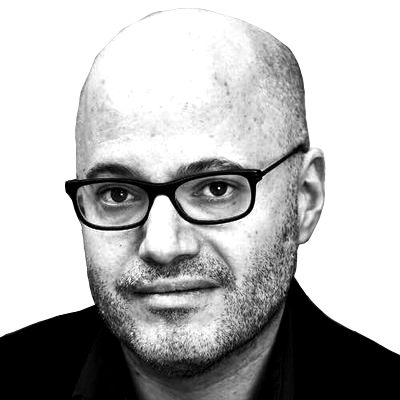You have always wondered what Bob Dylan is listening to when he’s not being Bob Dylan for us. The public Dylan is already a mystery. Dylan, the listener, is an even bigger secret. You want to know how he reacts, and what he likes, or really hates.
There’s a time when the performance stops, the muse malingers, and we just take in someone else’s song. And when you are listening in private, no one has any expectations. No one is cheering for your “Watchtower” encore.
Questions make him uncomfortable, and he knows that when he answers, it will become a statement by Bob Dylan, a notable quotable, a crossword in pen. “If I wasn’t Bob Dylan, I’d probably think that Bob Dylan has a lot of answers myself,” he once said. Dylan is now brimming with answers in The Philosophy of Modern Song, a collection of 66 random essays not organized by chronology or genre.
Now you know that he is as serious about listening as he is about creating, especially voices that can do things beyond his own chops. Go to a Dylan concert on the other side of 2021 and he will be obscured in chiaroscuro. He released a filmed performance that year called Shadow Kingdom. He’s Garbo. He’s Blanche DuBois. Don’t turn the light on.
And yet in the cold light of day, you can inhabit the private Dylan in a book that has been brewing since 2010. It is filled with songs and hyperbole and views on love and lust even darker than Blood on the Tracks. You get country songs, Great American Songbook standards, 50s rock, just a little 60s rock, and, chronologically, it runs out with Waylon Jennings, Elvis Costello (the other Elvis gets a few songs), and the Clash.
And you think about who isn’t among this particular canon: Little Richard but no Chuck Berry, the Who but no Stones, Ray Charles but no Stevie Wonder, Cher but no Joni or Joan (too close) or Patti. You get Warren Zevon—“My Dirty Life and Times” is the most recent song here, from 2003—but then lots of serious thought on the Eagles and Jackson Browne, but no Randy Newman or Steely Dan. You get Jimmy Reed and Mose Allison and Johnny Cash and the Grateful Dead, a band Dylan tried to join at a low point. There are no Beatles, but they are everywhere anyway.
You might say that it is impossible to write about everybody, but there are 66 songs discussed here, and some of them are by Ricky Nelson, Marty Robbins, the Fugs, John Trudell. Plus Cher. Not everyone is top-tier.Only four are by women, which is ridiculous, but he never asked us.
The title of this book is The Philosophy of Modern Song, but there are no Socratic dialogues or Hegelian dialectics. Nothing is proved, but everything is experienced—one really weird and brilliant person’s experience, someone who changed the world many times.
Part of the pleasure of the book, even exceeding the delectable Chronicles: Volume One, is that you feel liberated from Being Bob Dylan. He’s not telling you what you got wrong about him. The prose is so vivid and fecund, it was useless to underline, because I just would have underlined the whole book. Dylan’s pulpy, noir imagination is not always for the squeamish. If your idea of art is affirmation of acceptable values, Bob Dylan doesn’t need you.
You will notice that Bob and I have a thing for the second person. When he writes about Elvis Costello’s “Pump It Up,” he mentions that he might have been listening to Springsteen and “Subterranean Homesick Blues” (a rare mention of a Dylan song), but he also writes this:
You live in a world of romance and rubble, and you roam the streets at all hours of the night. You’ve acquired things and brought people the goods. It’s not like you have a promising future. You’re the alienated hero who’s been taken for a ride by a quick-witted little hellcat …
This goes on for a while, until he switches to the third person and talks about rhymes:
With tender hooks and dirty looks, heaven-sent propaganda and slander that you wouldn’t understand. Torture her and talk to her, bought for her, temperature, was a rhyming scheme long before Biggie Smalls or Jay Z. Submission and transmission, pressure pin and other sin, just rattled through this song.
This kind of rhythm is sustained through the whole book. He has a narrative riff about the song, then he riffs about the artist, a brew that runneth over. After a while, I got suspicious.
Dylan has lifted song lyrics, portions of Chronicles: Volume One, even his Nobel Prize speech—he skipped the ceremony but recorded a speech, now available on YouTube—which pulled from SparkNotes, which you have to admit is pretty funny. Anyone who listened to Dylan’s SiriusXM radio show, Theme Time Radio Hour, written by Eddie Gorodetsky, will find a similar jukebox eclecticism and rhythm to the prose. Whoever did what, the writing here is at turns vivid, hilarious, and will awaken you to songs you thought you knew.
The prose brims everywhere you turn. It is almost disturbing. Bob Dylan got his Nobel and all the other accolades, and now he’s doing my job, and he’s so damn good at it. Bob Dylan is not like the rest of us, except that he sort of is. He hated being called “the voice of a generation.” Now he’s eavesdropping on other voices.
He goes second person on Elvis Presley’s “Money Honey,” and despite that $300 million Universal deal, he’s still a man of the people. “The best things in life are free, but you prefer the worst,” he writes. “Maybe that’s your problem.”

David Yaffe is a professor of humanities at Syracuse University. He writes about music and is the author, most recently, of Reckless Daughter: A Portrait of Joni Mitchell. You can read his Substack here


